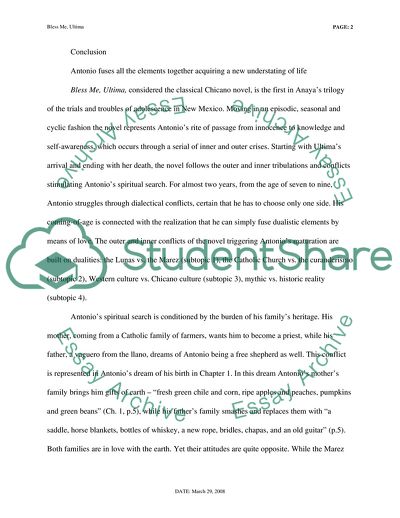Bless Me, Ultima by Rudolfo Anaya Essay Example | Topics and Well Written Essays - 2000 words. https://studentshare.org/literature/1712886-bless-me-ultima-by-rudolfo-anaya
Bless Me, Ultima by Rudolfo Anaya Essay Example | Topics and Well Written Essays - 2000 Words. https://studentshare.org/literature/1712886-bless-me-ultima-by-rudolfo-anaya.


